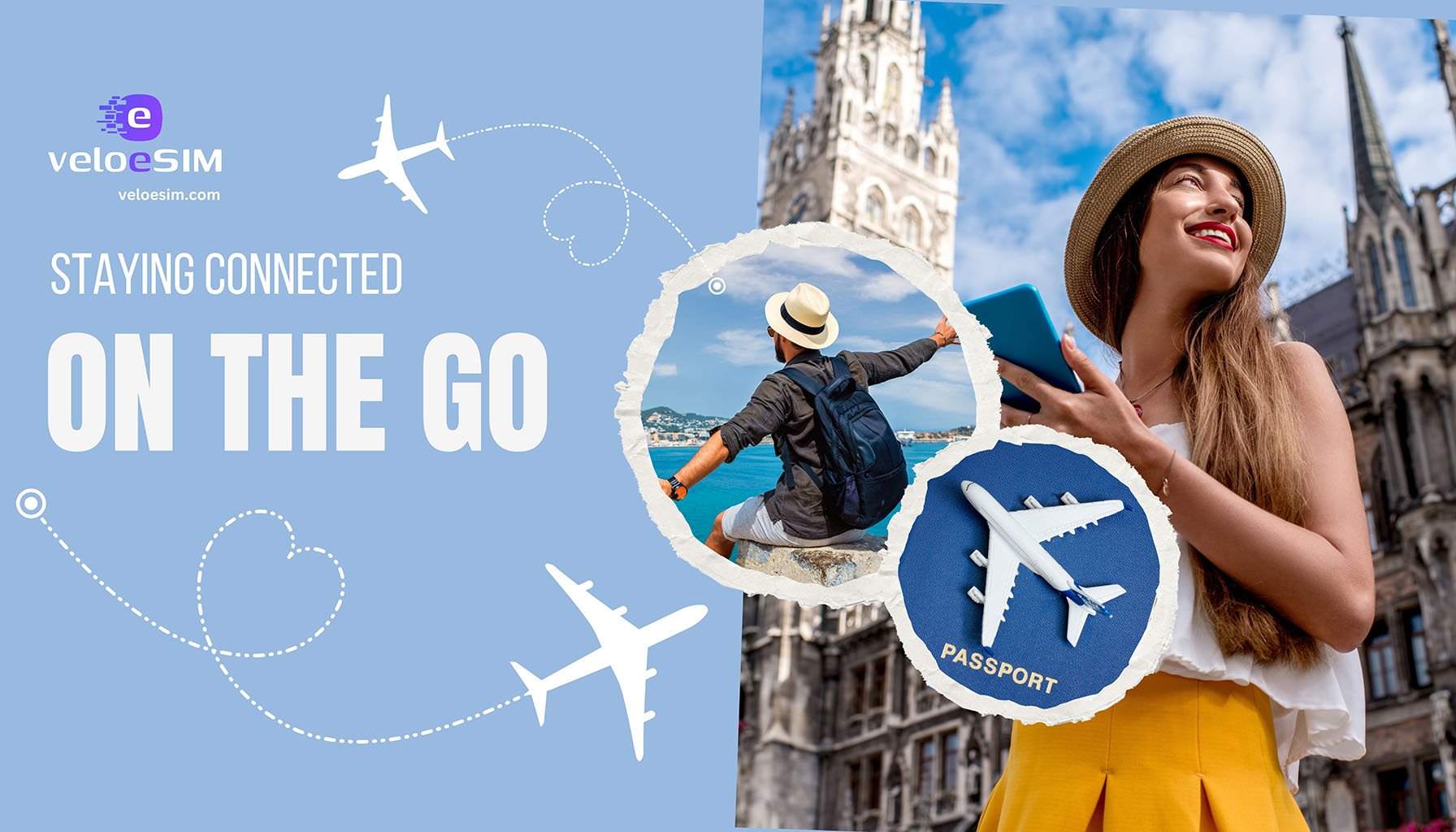As exciting as travel can be, it’s essential to prioritize safety and security to ensure a smooth and enjoyable journey. Whether you’re embarking on a solo adventure or traveling with companions, taking proactive measures and remaining vigilant can significantly reduce risks and enrich your overall travel experience. Throughout this article, we’ll delve into a comprehensive array of essential tips and strategies for maintaining safety and security while traversing unfamiliar landscapes. By implementing these proactive measures and adopting a vigilant mindset, you’ll not only enhance your personal safety but also elevate the quality of your travel adventures, enabling you to explore with confidence and peace of mind.
- Research Your Destination
Before embarking on any journey, whether it’s a weekend getaway or an international adventure, thorough research of your destination is essential for a safe and enjoyable experience. Researching your destination allows you to familiarize yourself with local customs, laws, and potential safety concerns, empowering you to make informed decisions and better navigate unfamiliar environments.
 One of the primary reasons for researching your destination is to gain insight into the local culture and customs. Every destination has its own unique customs, traditions, and social norms, which may differ significantly from those of your home country. By understanding and respecting these cultural differences, you can avoid inadvertently causing offense or disrespecting local customs. Researching the local culture can also enhance your travel experience by allowing you to immerse yourself more fully in the destination’s rich heritage and traditions. Whether it’s learning about traditional festivals, cuisine, or etiquette, embracing the local culture adds depth and authenticity to your travel experience. Another crucial aspect of destination research is understanding the local laws and regulations governing your chosen destination. Laws regarding behavior, alcohol consumption, drug use, and other activities may vary widely from country to country, and ignorance of these laws is not an excuse for non-compliance.
One of the primary reasons for researching your destination is to gain insight into the local culture and customs. Every destination has its own unique customs, traditions, and social norms, which may differ significantly from those of your home country. By understanding and respecting these cultural differences, you can avoid inadvertently causing offense or disrespecting local customs. Researching the local culture can also enhance your travel experience by allowing you to immerse yourself more fully in the destination’s rich heritage and traditions. Whether it’s learning about traditional festivals, cuisine, or etiquette, embracing the local culture adds depth and authenticity to your travel experience. Another crucial aspect of destination research is understanding the local laws and regulations governing your chosen destination. Laws regarding behavior, alcohol consumption, drug use, and other activities may vary widely from country to country, and ignorance of these laws is not an excuse for non-compliance.
Safety and security should always be top priorities when traveling to a new destination. While most destinations are generally safe for tourists, it’s essential to be aware of any potential safety concerns or risks that may exist. Researching safety and security concerns involves assessing factors such as crime rates, political stability, and health risks in your chosen destination. Check for any travel advisories or warnings issued by your government or reputable travel organizations, and pay attention to recent news events or developments that may impact your travel plans. Alongside with safety a safety and security, health and medical considerations are also important factors to research when planning your trip. This includes understanding any health risks or diseases prevalent in your destination, as well as necessary vaccinations or medical precautions you may need to take before traveling.
Here are some practical tips for conducting thorough research:
- Start Early: Begin researching your destination well in advance of your trip to allow ample time for planning and preparation.
- Use Reliable Sources: Seek information from reliable sources such as government websites, travel guides, and reputable travel blogs or forums.
- Check Multiple Sources: Cross-reference information from multiple sources to ensure accuracy and reliability.
- Look for Insider Tips: Seek out insider tips and recommendations from fellow travelers who have visited your destination previously.
- Stay Updated: Continue monitoring news and updates about your destination leading up to your trip to stay informed of any changes or developments.
By taking the time to research your destination thoroughly, you can ensure a safe, informed, and enjoyable travel experience. Whether you’re exploring a new city, embarking on a hiking adventure, or immersing yourself in a different culture, knowledge is the key to unlocking unforgettable travel memories.
- Secure Your Belongings and Keep Important Documents Safe
Ensuring the safety and security of your belongings and important documents is paramount when traveling. Whether you’re exploring bustling cities or tranquil beach destinations, taking steps to secure your possessions and safeguard essential documents is crucial for a worry-free journey.

Invest in sturdy, high-quality luggage with built-in locks and durable materials to protect your belongings during transit. Consider using luggage with hard-shell casing or slash-proof fabric to deter theft and tampering. Also, secure your luggage with TSA-approved locks to prevent unauthorized access during travel. Use locks to secure zippers and compartments, and consider using cable or chain locks to attach your luggage to fixed objects for added security. A traveler can take advantage of hotel safes or secure storage facilities to store valuables and important documents when not in use. Use the safe deposit box provided by your accommodation to store passports, cash, and other valuable items securely.
Before traveling, make copies of essential documents such as passports, visas, travel insurance policies, and credit cards. Keep digital copies stored securely in the cloud or email them to yourself for easy access in case of loss or theft. Invest in a travel document organizer or wallet to keep important documents organized and secure during your trip. Choose a compact, RFID-blocking organizer with multiple compartments for passports, tickets, boarding passes, and credit cards. When out and about, carry only the essential documents you need for the day in a secure, zippered pocket or pouch. Avoid carrying unnecessary documents or leaving them exposed in open pockets or bags.
- Stay Alert and Aware
When traveling, being alert, aware, and prepared is crucial for ensuring your safety and security in unfamiliar surroundings. Whether navigating busy city streets or exploring remote destinations, maintaining vigilance and readiness for potential emergencies can significantly enhance your travel experience. Remaining mindful of your surroundings is one of the most effective ways to stay safe while traveling. Pay close attention to the people, vehicles, and activities around you, trusting your instincts if something feels amiss or unusual. Minimize distractions such as phone use or listening to music in crowded or unfamiliar areas, allowing you to react promptly to any potential threats. Stay vigilant for signs of suspicious behavior or activity, such as individuals loitering nearby or approaching you with unsolicited offers. Trust your intuition and take appropriate precautions if you feel uncomfortable or threatened. Stay informed about local news, events, and safety advisories, adjusting your plans accordingly based on the latest information. Whenever possible, travel with companions or in groups, especially in unfamiliar or high-risk areas. There is safety in numbers, and traveling with others can help deter potential criminals or opportunistic individuals. Establish a communication plan with your travel companions or loved ones, sharing your itinerary and contact information and agreeing on a designated meeting point or protocol in case of separation.
In addition to staying alert and aware, being prepared for emergencies is essential for travelers. Carry a compact first-aid kit with essential supplies, such as bandages, antiseptic wipes, and pain relievers, to address minor injuries or medical issues. Familiarize yourself with local emergency services, including police, fire, and medical assistance, and keep a list of emergency contacts readily accessible. Keep important documents, such as passports, travel insurance policies, and medical records, stored securely in a waterproof container or pouch. Having access to essential documents can expedite the process of obtaining assistance or medical care in an emergency.
- Stay Connected and Updated
In today’s interconnected world, staying connected and informed while traveling is more critical than ever. Maintaining communication and access to timely information enhances your travel experience and ensures your safety and convenience. In an age where smartphones and mobile devices are ubiquitous, staying connected while traveling has become essential for both personal and professional reasons. Whether it’s staying in touch with loved ones back home, accessing essential travel information, or conducting business on the go, having reliable connectivity is paramount. Mobile apps such as VeloeSIM provide travelers with convenient access to eSIM technology, allowing them to stay connected to cellular networks in multiple countries without the need for physical SIM cards. With VeloeSIM, travelers can easily activate and manage their eSIMs directly from their smartphones, ensuring seamless connectivity wherever their travels take them. Maintaining communication with family, friends, and colleagues while traveling offers peace of mind and enhances the overall travel experience. Whether it’s sharing updates and photos on social media, coordinating meetups with fellow travelers, or staying in touch with work-related matters, having reliable connectivity ensures that you’re never out of reach when you need to connect. Beyond personal communication, staying connected while traveling enables access to essential travel resources and services. From navigating unfamiliar destinations with GPS and mapping apps to accessing translation tools and currency converters, having internet access on the go enhances your ability to explore and enjoy your travels with confidence.
In addition to staying connected, staying informed and updated while traveling is crucial for making informed decisions and staying safe and secure on the road. Whether it’s staying abreast of local news and events, monitoring weather forecasts, or receiving real-time travel advisories, having access to timely information empowers travelers to navigate their journeys with confidence. Mobile apps and online resources provide travelers with access to a wealth of information and updates relevant to their travel destinations. From flight status updates and transportation schedules to restaurant reviews and tourist attractions, staying informed allows travelers to plan and adjust their itineraries on the fly, maximizing their travel experience.
- Respect Local Laws and Customs
 Respecting local laws and customs is fundamental for travelers seeking meaningful and authentic experiences while fostering mutual respect and understanding with host communities. Every destination has its own unique cultural norms, traditions, and legal regulations that travelers should be mindful of to ensure a positive and enriching travel experience. Before embarking on any journey, it’s essential for travelers to familiarize themselves with the laws and regulations of their destination country. This includes understanding local customs, traditions, and social norms, as well as legal requirements related to behavior, dress code, and cultural etiquette. Respecting cultural customs and traditions is essential for building positive relationships with local communities and fostering cross-cultural understanding. This includes being mindful of cultural practices related to greetings, gestures, and social interactions, as well as respecting sacred sites, religious practices, and traditional ceremonies. Travelers should dress modestly and appropriately according to local customs and traditions, especially when visiting religious sites or participating in cultural events. Avoiding behavior that may be considered disrespectful, such as public displays of affection or loud and disruptive behavior, demonstrates sensitivity and consideration for local values and norms.
Respecting local laws and customs is fundamental for travelers seeking meaningful and authentic experiences while fostering mutual respect and understanding with host communities. Every destination has its own unique cultural norms, traditions, and legal regulations that travelers should be mindful of to ensure a positive and enriching travel experience. Before embarking on any journey, it’s essential for travelers to familiarize themselves with the laws and regulations of their destination country. This includes understanding local customs, traditions, and social norms, as well as legal requirements related to behavior, dress code, and cultural etiquette. Respecting cultural customs and traditions is essential for building positive relationships with local communities and fostering cross-cultural understanding. This includes being mindful of cultural practices related to greetings, gestures, and social interactions, as well as respecting sacred sites, religious practices, and traditional ceremonies. Travelers should dress modestly and appropriately according to local customs and traditions, especially when visiting religious sites or participating in cultural events. Avoiding behavior that may be considered disrespectful, such as public displays of affection or loud and disruptive behavior, demonstrates sensitivity and consideration for local values and norms.
Respecting local laws and regulations is not only a matter of cultural sensitivity but also a legal obligation for travelers. It’s essential to familiarize oneself with laws related to alcohol consumption, drug possession, public behavior, and photography, as these may vary significantly from one country to another. Travelers should exercise caution and discretion when engaging in activities that may be legal or acceptable in their home country but prohibited or frowned upon in their destination. This includes avoiding behaviors such as drinking alcohol in public, using recreational drugs, or engaging in activities that may be deemed offensive or disrespectful to local customs and traditions.
In travel, staying safe and secure is like having a trusted guide by your side. Being aware of your surroundings, prepared for anything, and respectful of local customs are the keys to a stress-free journey. Whether you’re exploring busy cities or quiet corners, keeping an eye out for potential risks is essential. Packing essentials like a first-aid kit and knowing emergency contacts adds an extra layer of security. Being mindful of local customs shows respect for the places you visit and helps you connect with the people there. By following these simple tips, travelers can enjoy their adventures with confidence, knowing they’re well-prepared for whatever comes their way.



